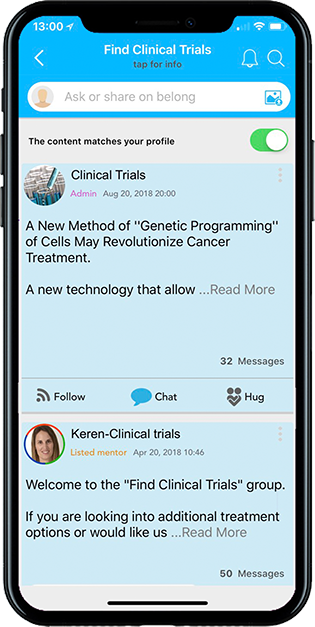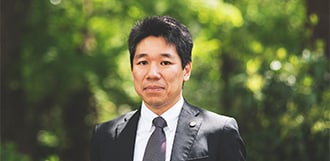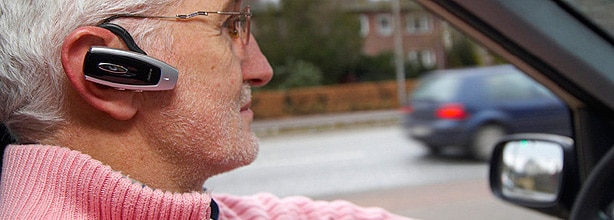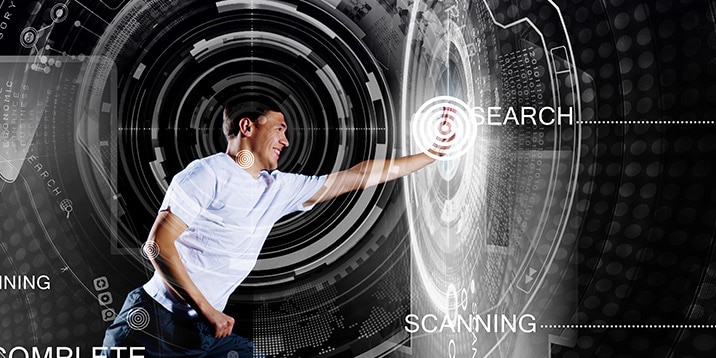
- Semiconductor Technology Now
Expert Interview
Telescope Magazine: You mention that patients can upload their medical records, but can individual patients get hold of their own medical records in any country in the world?
Irad Deutsch: I’m not aware of all the countries, but in Israel and in the U.S., medical data is available to individual patients. In the U.S. there is an initiative called the Blue Button initiative where the health department is driving all providers, all hospitals, and all clinics, to allow for patients to extract their data. Patients are more and more able to get their hands on their data. In Europe it’s common to have access to your data. But a lot of our patients don’t necessarily upload their documents. They just talk about it. We ask them – do you know your mutation? But they don’t. They go ask and then tell us the answer. So not all patients have access but it’s becoming more and more common in the U.S. It really empowers patients.
Telescope Magazine: In the clinical trials that you match with patients, how is it done? Does your machine learning and AI search your medical file and try to match?
Irad Deutsch: I’ll explain. First, we have this community in Belong that’s called Finding Clinical Trials. People walk into this group and say – I want to find a clinical trial. Then we ask for them to share the information that we need for the process and they share it. Voluntarily, of course. Then we allow them to delete all their personal information. They can take pictures, they can write it in text, they can do whatever they want. We provide them with tools to delete their identity as they take pictures, for example. We get the data and then we have a lot of technologies that digest this data and make it into structured data. This is one side of it. The other side, we partner with the National Cancer Institute in the U.S. and we get a list of all the clinical trials. We also digest this data, written in plain text to make it into a structured form using our technology. This is where a lot of NLP and machine learning kicks in to make an inclusion and the exclusion criteria of clinical trial into something more structured that a computer can digest. The next thing we do is that we have a machine that compares the patient profiles and the exclusion and inclusion criteria of all the clinical trials. Then it narrows down everything and it presents a handful of options to our clinical trial agent. We don’t have to crawl through the entire 250,000 clinical trial database; we just have to be presented with what the machine has found and do a final filtering manually. It really has dramatically reduced time and effort. We’ve served over 5000 patients already with clinical trial matching globally in just a year and a half. It’s really dramatic.
 |
Telescope Magazine: Until now, the patients had actually no way of learning where you are, can match somewhere. Am I right?
Irad Deutsch: Correct. They have this online database and only a doctor could really understand those exclusion and inclusion criteria. I’m educated, I consider myself smart and I was unable to find a clinical trial for my mother. Assuming that the average patient can’t really do it and the doctor only knows the clinical trials that are in the specific hospital, they will not necessarily tell me about clinical trials in a competitor hospital across the street. They may have heard about a clinical trial in another country but they don’t have the capacity to do this work for every patient and do the entire search. This is where machines can really accelerate this.
Telescope Magazine: Belong.life is a place where patients can obtain useful information and benefit from exchange with others.
Irad Deutsch: What’s really interesting in Belong is that we have cracked what we call the “patient engagement atom.” It’s really hard to keep a patient engaged, especially around a disease like cancer. People don’t want to talk about cancer all day long. All the data is being served to you in a highly personalized way based on these algorithms. We constantly monitor where you are and what you need and try to provide you with the right information at the right time. We don’t want to bombard patients with a ton of data that they don’t care about. A stage one cancer patient doesn’t care about drugs for stage four cancers. Even more, stage one cancer patients think “when can I go back to work?” Stage four cancer patients think “will I see my son get married?” We don’t want to mix those patients together just because they are both breast cancer patients; they have the same mutation but still they’re very different from each other. The technology allows us also to mix the right patients with the right patients and the right data at the right time.
Telescope Magazine: I see. When you communicate with other patients is it only the same space, the same level of the journey?
Irad Deutsch: We have this feature called My Feed, which is a place where we collect data from users from all across the Belong network similar to user profiles, meaning they are treating the same disease and staging, or even have the same type of patient on the same drug, depending on what we know or learn about you. But again, if you find someone else you want to check with, go ahead, you can do that too. You have private check, you can talk to other patients privately, you can create your own little communities and create bigger communities of your own and then you have the Belong communities where everybody hangs out.
Telescope Magazine: I see. As I understand, your service is more about opportunities for the patients, what kind of clinical trials that there are or whom you can talk to. But what about the kind of people with a disease, they found this medicine that can be the best choice for you... that kind of information. Is that something you exclude from your service?
Irad Deutsch: We never, never, ever provide medical advice to patients, and we are very clear about this. Every time an expert talks, he never recommends you do this, you do this. He’s only saying: it is common to do this under some circumstances. Or, you may also choose to do this and why. Thus he explains this product. When patients talk among themselves and share their experience they may say – well, I took this drug and it worked like magic for me. But patients are sharing experience. We’re not part of this circle. But what the expert says is moderated and it’s never medical advice. We do have a policy around what you can or cannot say on Belong and it’s usually around offensive content. We have technologies to try to detect these things. We also have the users’ ability to report each other if they’re being hounded or they see something that is not relevant, and then we handle it.



















